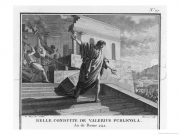Forces appear to be gathering to push America toward the greatest aggrandizement of the state since the New Deal.
Duncan Kennedy on Trump's Big Win
While he does not write that much these days, Duncan Kennedy used to be a big deal. Kennedy was one of the leaders of Critical Legal Studies, the far leftist group of scholars who had a significant influence in the legal academy in the 1970s and 1980s. Interestingly, CLS seemed to lose tremenous influence after the fall of the Soviet Union, raising questions about their claim to favor a different type leftism than that country.
While many on the right disliked Kennedy’s articles, I didn’t. Not only was he my favorite CLS scholar, I found his work quite interesting. Like some others within CLS, such as Roberto Unger, Kennedy focused on classical liberal political and legal theories, such as those authored by Friedrich Hayek. I disagreed with Kennedy’s critique of those theories, but to me he was focused on the right debate and had interesting things to say about it, even if I disagreed with his bottom line.
Kennedy now has a new piece on the 2016 presidential election, “A Left Of Liberal Interpretation Of Trump’s “Big” Win,” which shows much of what I had always liked about him. It is a pretty balanced piece, especially given that it was written by someone on the left. My guess is that Kennedy can be balanced because he is so far to the left and does not have a strong identification with the Democratic Party. In any event, here is a long excerpt from the introduction. While the whole thing is worth reading, I certainly don’t agree with all or even most of it. But it is interesting.
The question of interpreting Donald Trump’s election, in liberal discourse, is mainly “how can he have won, given that he is racist and sexist?” The answer of many of my friends is that he won because his racism and sexism appealed to a shockingly large part of the electorate, confirming that “our whole society is sexist and racist.” According to the liberal conception, this is particularly true of the non-college part of the electorate, which had more “traditional” (racist and sexist) values and less cognitive ability to figure out that he was going to screw them. If they were not racist and sexist, they would have rejected him outright, no matter how much they didn’t like Hillary. I think class, race and sex were key to everything, but in a different way than in that account.
It’s hard to argue with the more careful, liberal-Democratic account in which the answer to the question “why is he president?” is that the swing states just barely tipped to Trump in spite of Clinton’s solid victory in the popular vote. Why did that happen? The outcomes in Pennsylvania, Michigan, Wisconsin, etc. were so close that many situational factors could have been enough to determine the outcome.
Race figures in this analysis not as a general characteristic of the electorate but as one factor among many. The suppression of black votes in swing states is one of the things that could have made the difference. Another is Trump’s “dog whistle” to serious white supremacists, which probably helped turn out previous non-voter racists. But at the same time we can attribute it to Comey, or to taking the rust belt for granted, or to Russian hacking, or to “the treacherous liberal media,” to Hillary’s personal weakness as a candidate, or any number of others, maybe even Bernie. Or all of them together.
Then there is the “structural” factor: white, non-college voters are overrepresented in swing states compared to the country as a whole, giving their rational and irrational resentments an accidentally outsized importance in this particular race. Last, African-Americans voted overwhelmingly for Clinton, but in nothing like the numbers for Obama, and it is hard to see voter suppression as explaining the whole effect.
Which factor we choose to focus on is not about the “true” cause, but about what we think is important in terms of our larger agenda. My larger agenda is to understand the race/gender/class dynamics of the current situation in order to get a sense of what the future is likely to hold in terms of perils and possibilities. In big terms, I want to argue the election did not signal a major shift to the right of American political consciousness, but it did signal a rebellion (not a revolt), by many non-college-educated whites in red states, swing states, and red pockets in blue states; against both political parties.



